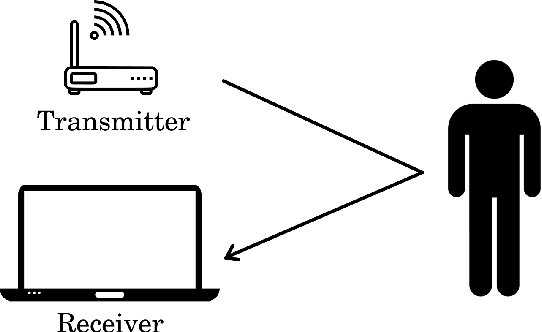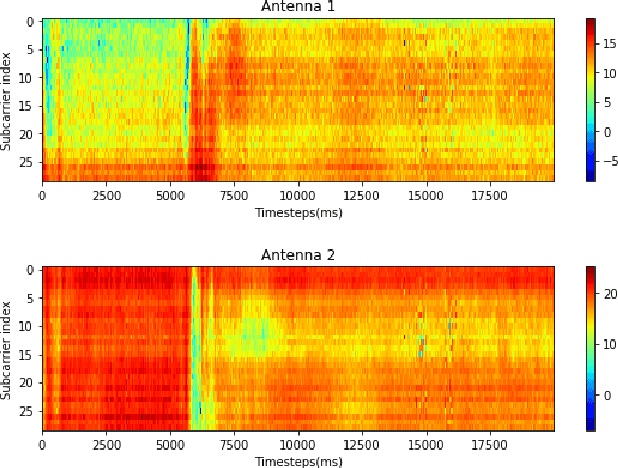Towards a Robust WiFi-based Fall Detection with Adversarial Data Augmentation
Paper and Code
May 25, 2020



Recent WiFi-based fall detection systems have drawn much attention due to their advantages over other sensory systems. Various implementations have achieved impressive progress in performance, thanks to machine learning and deep learning techniques. However, many of such high accuracy systems have low reliability as they fail to achieve robustness in unseen environments. To address that, this paper investigates a method of generalization through adversarial data augmentation. Our results show a slight improvement in deep learning-systems in unseen domains, though the performance is not significant.
* 2020 54th Annual Conference on Information Sciences and Systems
(CISS), Princeton, NJ, USA, 2020, pp. 1-6 * Will appear in Proceedings of the 54th Annual Conference on
Information Sciences and Systems (CISS2020)
 Add to Chrome
Add to Chrome Add to Firefox
Add to Firefox Add to Edge
Add to Edge